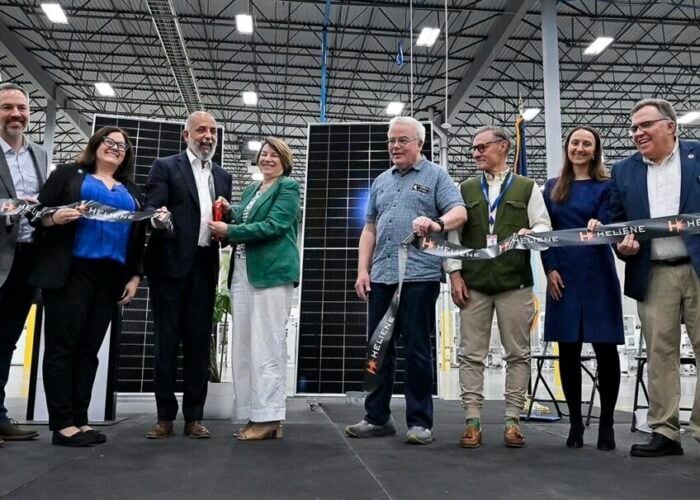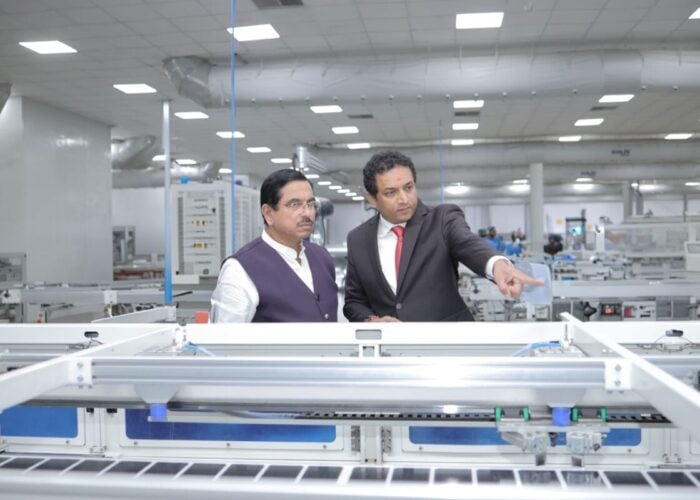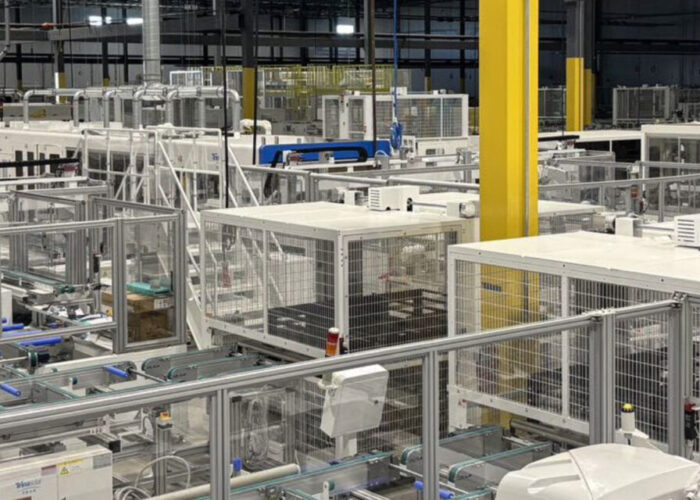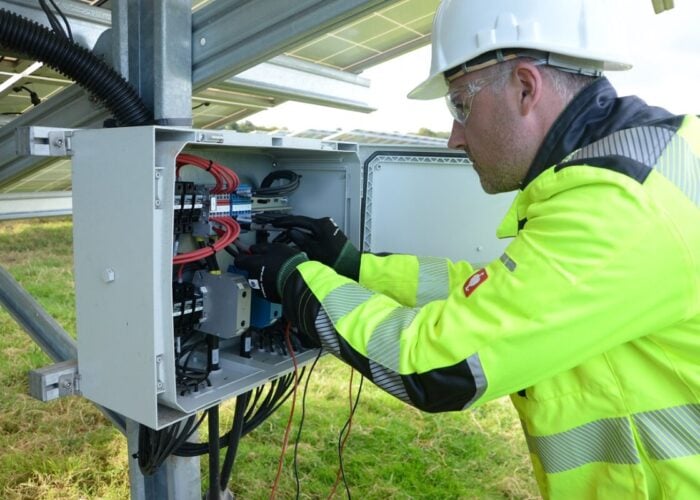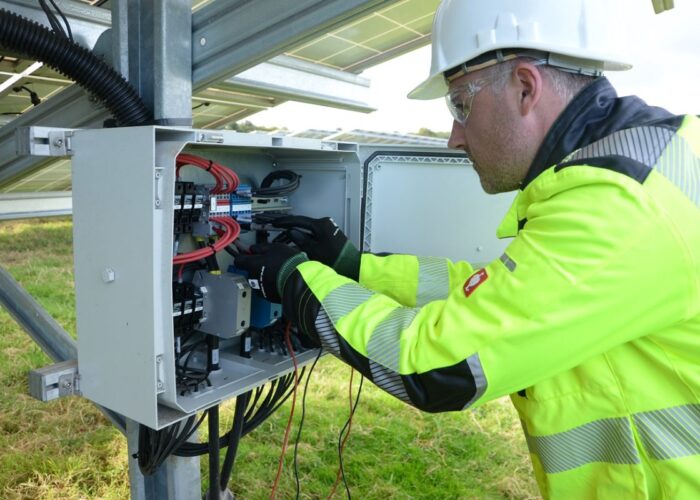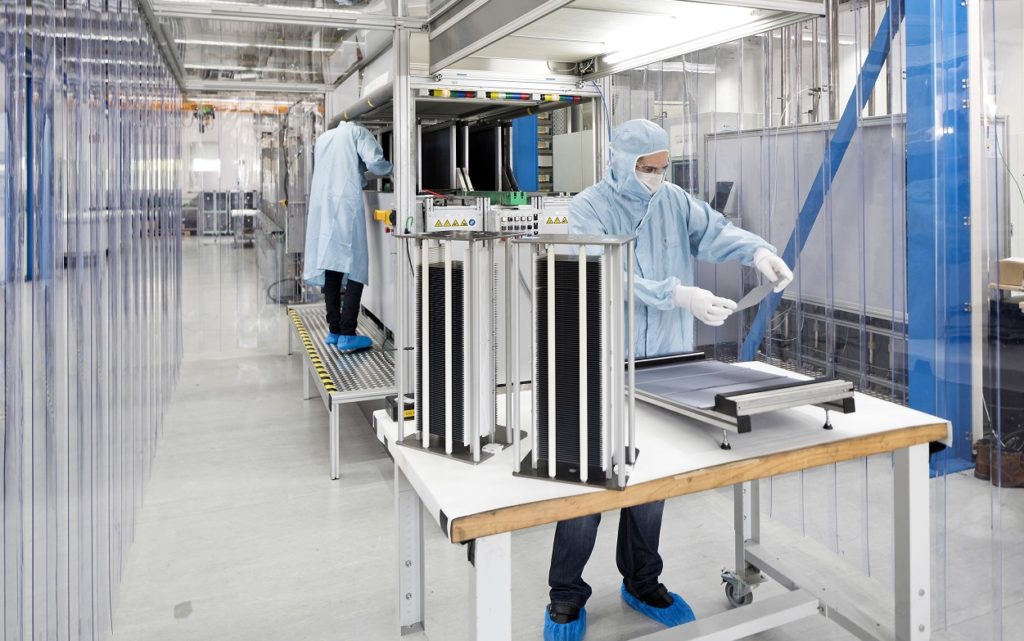
The European Solar Manufacturing Council (ESMC) has called on the European Union member states to allocate financial support from REPowerEU grants to support solar PV manufacturing.
The ESMC calls on EU member states to seize the opportunity to bolster the creation of competitive domestic solar PV manufacturing plants while boosting their economies through REPowerEU grants.
Unlock unlimited access for 12 whole months of distinctive global analysis
Photovoltaics International is now included.
- Regular insight and analysis of the industry’s biggest developments
- In-depth interviews with the industry’s leading figures
- Unlimited digital access to the PV Tech Power journal catalogue
- Unlimited digital access to the Photovoltaics International journal catalogue
- Access to more than 1,000 technical papers
- Discounts on Solar Media’s portfolio of events, in-person and virtual
Targets for the REPowerEU strategy – at the downstream level – were significantly ramped up last year with the EU aiming to deploy 740GW of solar capacity by 2030, and more recently both the European Council and the Parliament reached a provisional political agreement to raise the share of renewables up to 45% by 2030, as well as faster permitting.
With the additional funding of €20 billion (US$22 billion) in the Guidance on Recovery and Resilience Plans within the REPowerEU, the ESMC already suggested last March that EU member states allocate part of this funding towards domestic PV manufacturing.
EU’s reaction to bolster a domestic PV manufacturing industry
Since the beginning of the year, the European Commission has accelerated its intent to reshore the solar manufacturing industry in Europe with the release of the Green Deal Industrial Plan (GDIP) in February based on four pillars, among them faster access to funding.
Even though the plan was welcomed as a “good first step” by European solar manufacturers, more was needed to fully convince the industry of the EC’s intent to work on a level-playing field against other countries, mainly China and the US with its Inflation Reduction Act.
Soon after the release of the GDIP, two more acts were released – the Net Zero Industry Act (NZIA) and the Critical Raw Materials Act (CRMA) – by the EC. The first one aims to scale up manufacturing of clean energy technologies, increase its competitiveness in the EU and have 40% of its demand for cleantech in the EU be met by domestic production by 2030, while the CRMA targets to diversify the imports of critical raw materials and avoid the over-reliance on a single third country.
“We are now witnessing the closing momentum and possibilities for the EU Member States to support PV manufacturing in Europe. Most of the REPowerEU financing has already been allocated to projects for the deployment of renewables. However, the Member States have not fully taken the possibilities created by the European Commission in March this year into account, when the Temporary Crisis and Transition Framework (TCTF) to support net-zero industries was adopted,” said Žygimantas Vaičiūnas, policy director at ESMC.
Along with the European Solar PV Industry Alliance (ESIA), the EC targets a 30GW solar PV manufacturing annual capacity by 2025 across the entire PV value chain, which would supply up to 75% of the European solar panels needed annually at the current installation rate.
However, a possible lack of further financing in the revised national Recovery and Resilience Plans – which are expected to be submitted to the EC by the end of April – could jeopardise the target to have a domestic PV manufacturing industry capable of having a 30GW annual capacity by 2025, according to the ESMC.
Since the release of the GDIP, there has been an increased activity of announcements from European manufacturers to build new module assembly plants across Europe, and last week Spanish utility Iberdrola sought EU funding for a 1.6GW module assembly plant in Spain within the EC’s Innovation Fund.
Enel Green Power’s 3GW bifacial heterojunction solar module assembly plant in Catania, Italy was previously awarded funds last year under the Innovation Fund, and recently received a further €560 million in funding from banking group UniCredit to finance its expansion and with a first phase of 400MW expected to be operational in September 2023.
Last month the EC allowed EU member states to support the PV manufacturing industry by 15-35% of capital expenditures (capex) for large companies – while medium and small enterprises by 25-45% and 35-55% of the capex, respectively – for which the ESMC welcomed the decision.

